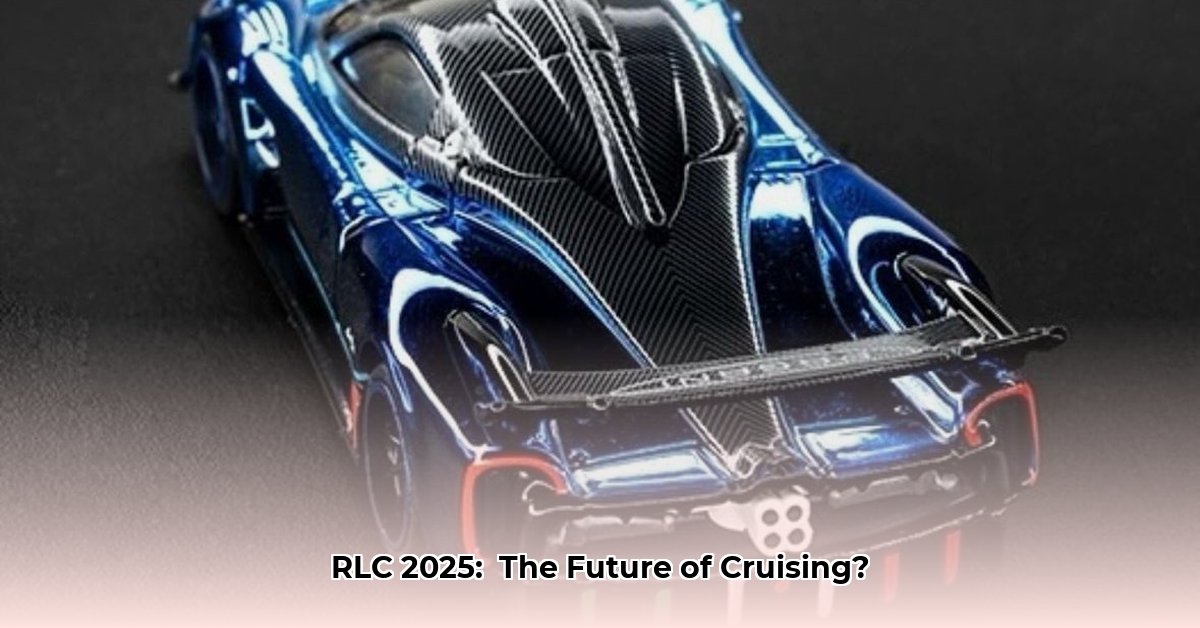
RLC 2025: A Resounding Success and a Roadmap for the Future
The 2025 Rock Legends Cruise (RLC XII) achieved a complete sell-out, a testament to the enduring appeal of music festival cruises. Thousands of rock enthusiasts enjoyed an unforgettable five-day musical journey from Miami to the Bahamas. However, a truly successful event necessitates a deeper dive beyond ticket sales, demanding a comprehensive analysis of what contributed to this success and how future iterations can build upon this foundation. This review examines RLC XII's triumphs and shortcomings, offering actionable strategies for continued growth.
The cruise boasted an undeniably impressive lineup, featuring legendary acts like Alice Cooper and Styx alongside rising stars such as Blackberry Smoke. This diverse roster catered to a broad range of musical tastes, contributing significantly to the event's popularity and ultimately, the complete sell-out. But while the sold-out status is undeniably positive, a more nuanced understanding of the event’s effectiveness requires a more detailed analysis. This requires concrete data – a crucial element currently missing.
One significant limitation is the absence of quantitative data. Without concrete metrics like revenue figures, customer satisfaction scores (Net Promoter Score, or NPS – measuring the likelihood of customers recommending the cruise), and comprehensive social media analytics, a complete assessment of RLC XII's profitability and overall passenger satisfaction remains elusive. How can we confidently measure the true success of the cruise without them? Data-driven decision making is paramount and must be a key focus for future RLC events. Similarly, the lack of competitive benchmarking against similar music cruises prevents a truly informed analysis of RLC XII’s market position and the identification of areas for potential improvement. By understanding our competitive landscape, we can identify opportunities to differentiate ourselves.
Actionable Intelligence: A Multi-Stakeholder Approach
To optimize future RLC cruises, a multi-pronged strategy targeting key stakeholders is essential. This strategy must focus on data collection, leveraging insights to enhance multiple areas of the cruise experience.
1. Rock Legends Cruise (RLC):
- Comprehensive Data Collection: Implement a robust data collection system encompassing financial performance, NPS scores, social media sentiment analysis, and media coverage. This will provide a 360-degree view of the cruise's success.
- Competitive Benchmarking: Conduct regular competitive analyses to identify best practices within the music cruise market. What are competitors doing well, and how can RLC innovate and differentiate itself?
- Strategic Growth: Explore expansion opportunities, including additional annual cruises, new destinations, and targeted marketing campaigns to reach new demographics. Consider expanding into complementary markets.
- Sustainability Initiatives: Implement environmentally conscious practices, such as carbon offsetting programs, enhancing the brand’s image and appealing to environmentally conscious passengers.
- Loyalty Program Development: Establish a dedicated loyalty program to reward returning passengers. Exclusive benefits and offers for repeat customers fosters brand loyalty and generates repeat business, driving long-term growth.
2. Artists and Management:
- Performance Measurement: Track artist performance through metrics such as merchandise sales, audience engagement, and social media mentions to inform future artist selection and negotiations, maximizing the return on investment.
- Strategic Partnerships: Cultivate relationships with artists, brands, and other relevant entities for potential collaborations and endorsements, increasing the appeal and reach of RLC.
3. Royal Caribbean (and Partner Cruise Lines):
- Operational Efficiency: Analyze ship utilization and identify opportunities to optimize operational efficiency, positively impacting both passenger experience and cost-effectiveness.
- Targeted Marketing Campaigns: Develop focused marketing campaigns designed to attract specific passenger segments, enhancing the effectiveness of marketing and maximizing bookings.
4. Passengers:
- Enhanced Feedback Mechanisms: Implement enhanced feedback mechanisms, such as detailed post-cruise surveys and active social media monitoring, to gather valuable insights from passengers and actively improve the cruise experience.
- Community Building: Create and cultivate a strong online community for RLC fans through dedicated social media channels and exclusive content, fostering engagement and loyalty among existing customers.
Risk Management and Regulatory Compliance
While RLC XII's success is undeniable, proactive risk management is critical for continued success. Potential risks include: economic downturns impacting ticket sales, increased competition, negative publicity, safety and security incidents, and adverse weather conditions. A comprehensive risk assessment, as detailed below, can provide effective mitigation strategies:
| Risk Factor | Likelihood | Impact | Mitigation Strategy |
|---|---|---|---|
| Economic Downturn | Medium | High | Diversify pricing tiers; Offer flexible payment plans. |
| Increased Competition | High | Medium | Focus on niche differentiation and unique value propositions; continuous innovation and improvements. |
| Negative Publicity | Low | High | Implement robust crisis communication protocols; proactive transparency with public relations. |
| Safety & Security Incidents | Low | High | Adhere strictly to safety regulations and protocols; robust training programs for staff. |
| Adverse Weather Conditions | Medium | Medium | Implement contingency plans for itinerary adjustments; flexible planning; insurance coverage. |
Strict adherence to all relevant maritime safety regulations, environmental protection laws, and passenger rights legislation is paramount. Non-compliance can result in substantial penalties and irreparable damage to the RLC brand.
Conclusion: Charting a Course for Continued Success
RLC XII’s sell-out demonstrates the significant demand for high-quality music cruises. However, continued growth requires a data-driven approach, proactive risk management, and a multi-stakeholder strategy focusing on enhancing the passenger experience. By implementing these actionable recommendations, RLC can not only replicate this success but also propel the brand to even greater heights in the future. The potential for continued growth and improvement is significant.